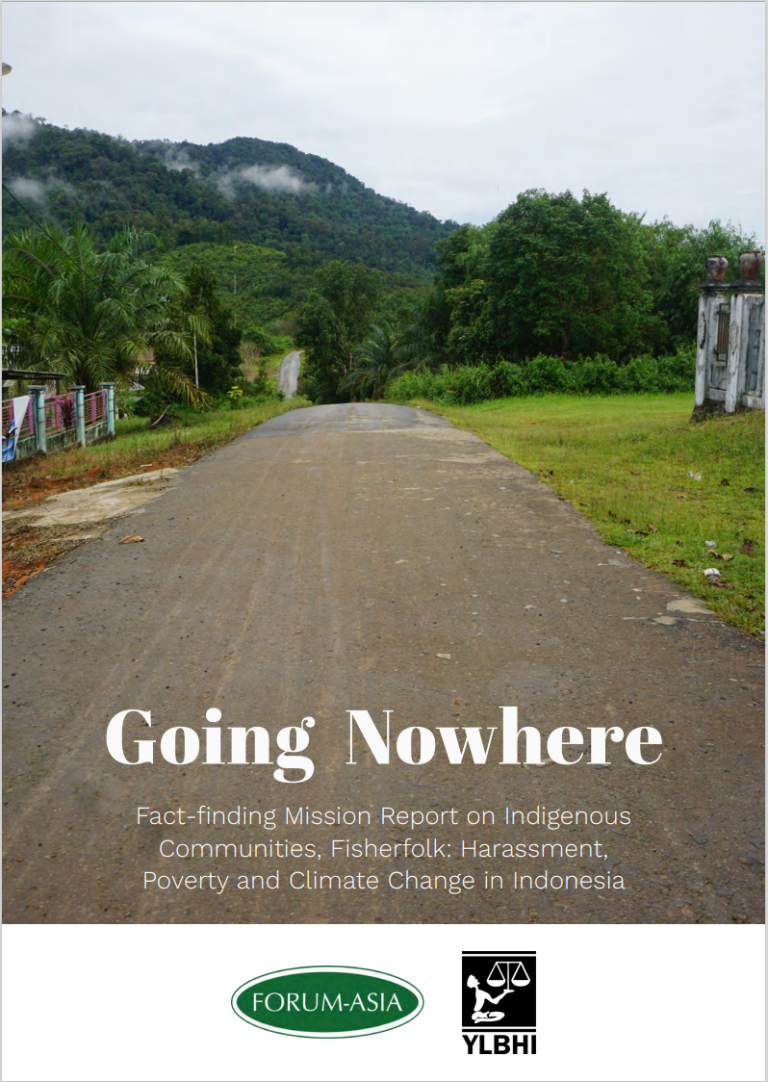This report is based on findings and testimonies related to poverty, climate change and human rights in three different provinces of Indonesia, namely: the customary territory of Laman Kinipan in Lamandau (Central Kalimantan), the fishing villages of Tuminting, Sario, and Malalayan in Manado City (North Sulawesi), and Sebrang Fisherman’s Village Belawan Village I of Belawan Subdistrict, Medan (North Sumatra).
The three locations have unique characteristics and different landscapes and ecosystems, but they all face the threat of climate change, while people and communities are also exposed to poverty and human rights violations. This challenging scenario is the result of the Government’s inaction and proactive pursuit of an unsustainable development model, which has led to violations of economic, social, and cultural rights, as well as civil and political rights.
Large-scale development policy failing to place people/communities at its center is nothing new for Indonesia. Such a development model is a heritage of the authoritarian New Order regime, and after more than 20 years of democratic reforms, this model is back in full force and even legitimized by the Omnibus Law – 2020 Job Creation Law No.11.
Collected testimonies and data confirm how in Indonesia development policies and projects often become an entry point for human rights violations and deterioration of environment. So-called development projects contribute to deforestation and climate change, endangering the right to livelihood and food security of the affected communities.
When addressing this kind of development model, which is also reinforced by a shrinking civic space, it is important to highlight testimonies and stories of the grassroot communities. These stories become data and evidence of distorted development practices which end up depriving peoples of their rights. We needs reports of this nature to expand advocacy channels and hold accountable state and non-state actors.
